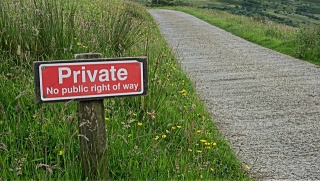Learning in a digital age/LiDA102/Introduction to digital citizenship/Rights and responsibilities
From WikiEducator
The concept of citizenship encompasses the rights and responsibilities of individuals. We need to consider what rights and responsibilities come with digital citizenship. In this mini challenge, we explore this topic with particular emphasis on the rights and responsibilities associated with learning in a digital age.
Following the hype of the Massive Open Online Courses (MOOC) and the New York Times declaring 2012 the "year of the MOOC", a small group of educators convened to draft "A Bill of Rights and Principles for Learning in a Digital Age." This document will form the basis for a course discussion on the rights and responsibilities of digital citizens.
Start here
Tasks
- Read A proposal for rights and responsibilities for citizens in the digital world with particular reference to identifying rights and responsibilities appropriate for tertiary online study. Note that the publication is almost a decade old. Is this list still relevant today? What would you amend or add to update this proposal.
- Conduct a general search for rights and responsibilities of digital citizenship to assist in refining your own list for tertiary online study. Your search is likely to generate many results developed for the school sector, so you need to evaluate if these rights and responsibilities are appropriate for tertiary.
- Udacity version of the bill of rights
- Read the the following news editorials on the bill of rights:
- 'Bill of Rights' Seeks to Protect Students' Interests as Online Learning Rapidly Expands, published by The Chronicle of Higher Education.
- Critique of 'Bill of Rights and Principles for Learning in the Digital Age' published by Inside Higher Ed.
- Prepare a table summarising the primary rights and responsibilities for tertiary learning in a digital age.
- Remember to annotate and comment on the Hypothes.is and tag your contributions using the course code: #LiDA102
Outputs
